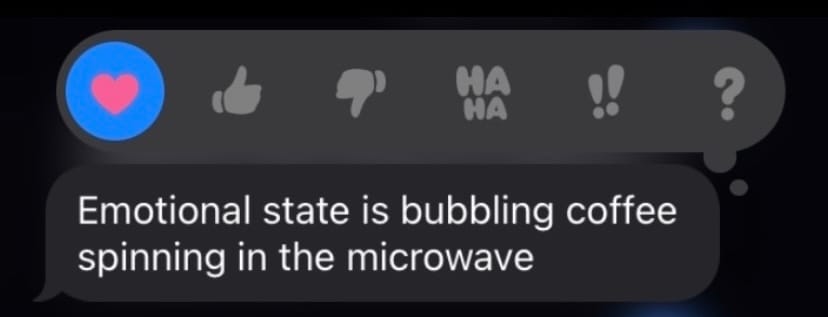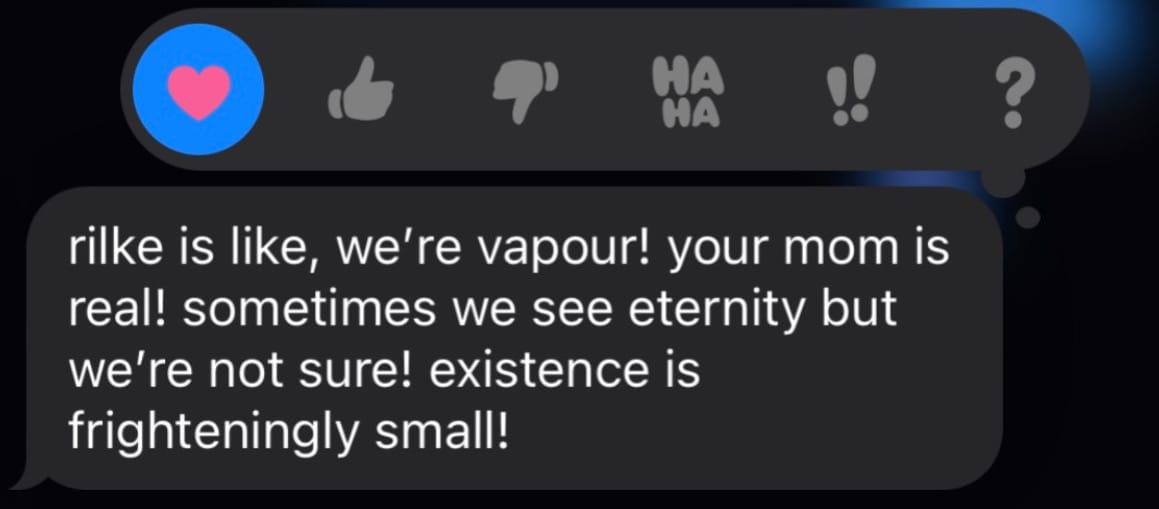Blue Monday
In a bad place, both emotionally and Ontario.
2024 came. The world, full of crisis and cruelty, spun around the sun once again. I took the train back to Montreal on January 1, thinking about resolutions and renewal. 2023 had been brutal, an indisputable, universally agreed upon fact. At least now it was different. A fresh hell.

On Blue Monday, I was (unexpectedly) back on a train, for a stay that lasted two weeks. Longer than I had stayed in years, and it felt even longer because of the strangeness of winter in southwestern Ontario—when I arrived it was -20˚ and snowing; a week later, I was outside in a t-shirt, splashing through puddles like a kid. The ice shelf on the lake ebbed and flowed, a frozen tide. It was cloudy every day, all day, except when a brief blade of sun would cut through around 4 p.m. and make everything glow.
There's very little to do there, especially in a shaky emotional state. To pass the time, I practiced building fires and drank a lot of hospital coffee. I spent too many hours staring at my phone, playing Bubble Pop and listening to old episodes of StraightioLab. I listened to the same Pixies song on repeat. I could barely read; the only novel that kept my attention was Lexi Freiman's Inappropriation. Evenings were accompanied by my father's regular rotation of Seinfeld, hockey, and a show about plane crashes.

Because of this, I watched a lot of movies that showed beauty in bleakness. FALLEN LEAVES, an instant new favourite, delightfully Finnish, working-class Wes Anderson. THE UNKNOWN COUNTRY, in which Lily Gladstone drives through the desert, a dream—Molly 's exactly right, she is "a ghost and a genius." FREMONT, so cool and quiet. A THOUSAND AND ONE, about mothers and home, and mothers-as-home. AFIRE, with its Ben-Lerner-meets-Sally-Rooney mix of millennial romance and climate anxiety. FORAGERS, a beautiful testament to the indescribable importance of home and the incomprehensible depth of grief.
In these movies, TVs and radios play in the background, providing a near-constant stream of semi-audible news updates. Their protagonists struggle with work, finding and keeping it, making ends meet. The villain is the world around them; the villain is the system; the villain is the police; the villain is the state. The stories these movies tell are real, which means they're often ugly, uncomfortable, and upsetting—but the care and grace with which they're shown makes them beautiful. In my hometown, amidst the ugliness of suburban sprawl and oil refineries and Canadian Tires and waiting rooms, I needed to be reminded that that was possible.
On r/architecture, someone asks "Why do you see that [sic] most beautiful sunsets from grocery store parking lots?" Someone answers: "You find beauty in the least expected places."

